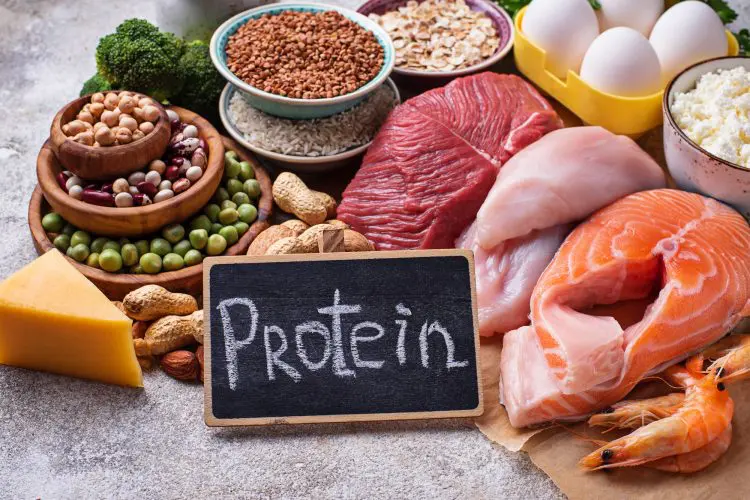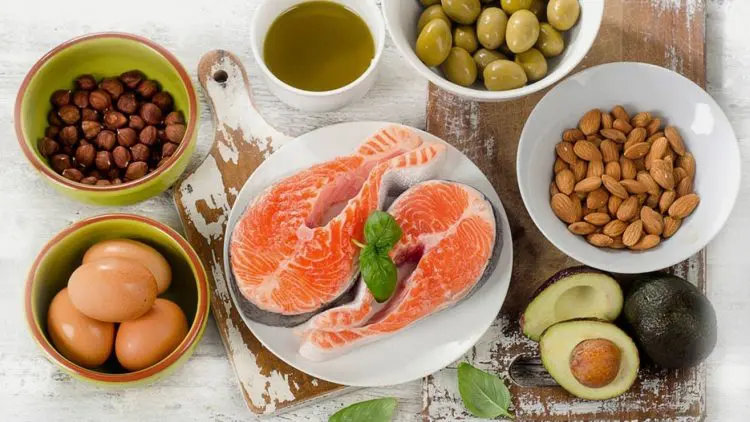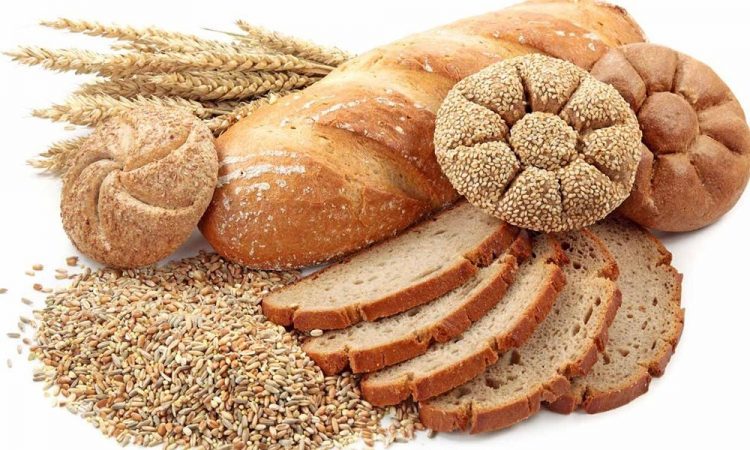I want to build the most muscle possible. That’s a statement we tell ourselves over and over when we step foot into the gym. We then train, strain, and apply as much intensity as possible in hopes that it will all be worth it over the weeks and months of dedication, discipline, and patience.
But, as with many things in life, there’s usually more to the story.
Diet.
We’re told we need to pack in the protein, take the best supplements, and eat over our maintenance level of calories. That is all great advice, but way too vague for practical results. Many of us put that advice into general motion and hope that it takes care of itself.
The best approach for building muscle
It’s not enough to hope, wish, and dream for more muscle. Even more, it’s still not enough to kill it in the gym. What we need is a practical, realistic, doable diet plan to enact that follows some of the basic tenets of muscle building.
You or someone you may know may currently be practicing a specific diet. A diet that is trending or that you might have read about in some article or video. Diets such as intermittent fasting, keto, or some sort of absolute diet having you only eat one or two types of foods.
Simply put, those aren’t going to pack on the muscle. If you’re following one of those and are successful then you’re most likely not reading this right now.
The one thing they and many others all have in common is calorie restriction. They are great for weight loss, but can potentially be detrimental to muscle gain. What you need is something that will make significant changes to your physique. You need muscle-building nutrition.
What is muscle-building nutrition?
Muscle-building nutrition is a set of basic principles designed to structure your eating habits in such a way to maximize and optimize your training efforts. It’s a way to regulate the act of gaining lean muscle tissue while staying relatively lean all the while making progress.
This isn’t some set of complicated dieting rules leaving you frustrated or confused. It’s also not designed to sound above your head so you buy into a plan or purchase a program. Nothing is for sale. Here you’ll find common sense, a few things you’ve heard of before, and a practical way to reach your goals.
The 5 principles of muscle-building nutrition
So let’s get to it. Below are five simple rules to follow. Yes, you’ve seen many of these before, but there are some important things to keep in mind about each – which may surprise you.
1- Don’t obsess over protein

First and foremost, protein is vital to your muscle-building success. It is the most important ingredient in building muscle tissue. However, we’ve evolved into a society obsessed with protein consumption. Many diets even advocate for protein to be the only ingredient you need in a diet.
Furthermore, the mainstream food industry is also banking on this obsession. Every kind of food manufacturer advocates it’s inclusion of protein in its food. Whether it’s cereal or water, protein has found its way into everything.
Yes, it is important, but let’s not stress too much about it.
What you should do: The old tried and true rule of getting in around one gram of protein per pound of desired body weight still holds up. Now, here is where things can go south quickly. If you happen to fail to reach this goal one day, don’t throw away your plan and act as if there’s no hope for you.
Simply get back on the horse and pick up where you left off. Life will throw things at you and you’ll miss a meal or two. That’s life. Stop stressing over every single gram.
2- Yes, you need carbs
Years ago fat was the so-called alleged culprit that was making our lives miserable, now it’s carbs. What’s next, protein? Carbs are not the enemy.
They contain essential micronutrients for general health and are protein sparing, meaning they will spare proteins from breaking down for energy so they can be better utilized for muscle tissue repair. Plus, carbs are our preferred source of energy.
What you should do: For someone who is looking to gain lean muscle mass, you’ll need some complex carbs to help facilitate not only protein usage, but also energy for your workouts. If you’re training hard and consistently you’ll need a steady dose of carbs daily to not only replenish energy stores, but also help get you ready for the next training session.
Shoot for around two grams of carbs for every pound of body weight to start. Depending on how well or efficiently you process carbs, you can adjust up or down from there.
Related: Can Carbohydrates Improve Athletic Performance?
3- Fats aren’t magic

Fats have taken on some sort of magical status lately. Yes, keto dieting is a real thing and many have had success with it regarding weight loss. But how keto dieting got all wrapped up into muscle building is a bit of a mystery and maybe a discussion for later.
The bottom line is that a severe diet void of carbs and extremely calorie restrictive will land little to no muscle on your frame, unless you’re a mutant.
Additionally, fats alone aren’t a miracle macronutrient enabling you to radically transform your physique. Too much emphasis and too many servings of fat will only lead to disappointment and possible unwanted fat gain.
What you should do: Initially, when you’re adjusting your diet to one of more balance, fats will more or less take care of themselves as plenty is found naturally in protein-rich foods. If you feel you need more, a little goes a long way.
Try small servings of avocado, olive oil, and nut butters. Again. Be very mindful of serving sizes as fat has over twice as many calories per gram as protein and carbs.
4- Calories count
With the unlimited amount of new diets circulating out on the web it’s easy to get lost in the weeds – to forget about common sense and throw caution to the wind by putting all of our faith in some specialized diet.
Many gurus will spout aloud a bunch of jargon to purposely confuse you. This is to coax you into throwing your hands into the air, let down your guard, put your trust in them, and buy their product or service. Save your money.
What you should do: Calories still count. If you take in more calories than you spend you will gain weight. Conversely, if you take in less then you lose weight. There is more detail than that, but the math is pretty simple.
Of course you want quality calories such as complex carbs and lean proteins. The advice on those above should give you a good starting point and allow you to adjust slightly. A general rule of thumb is to stay within 300 or so calories above or below maintenance regarding gaining or losing weight, respectively. Don’t overthink it.
5- Track everything
Having a diet plan is one thing, it’s quite another to keep track of said plan. Not keeping some daily details in a notebook or program is like trying to build a house while blindfolded. There are countless lifters who have the best intentions in the world, but lack the ability to know the status of their goals. They have the long-term goal established but can’t tell if they’re on the right track or not.
How many pounds of muscle have you gained? Are you gaining too fast and putting on fat? How about your training sessions? Are they progressing? Are certain foods more filling than others? Are you taking in enough protein on a weekly basis?
What you should do: Preferably keep a physical notebook to track not only your workouts (sets, reps, weight), but also your diet notes as well. Depending on your goals, you can jot down weekly bodyweight, circumference measurements, monthly body fat tests, meals each day, and other important things such as mood, how your schedule affects your eating, etc.
The important point is to keep a close eye on how your particular diet is working. Are you gaining weight at a steady pace? Do you need to cut back on sugar, fat, or time your meals better? Keeping track will give you that instant feedback needed to make sound and gradual adjustments. Without tracking you won’t know what’s working and what isn’t.
In closing
Muscle-building nutrition isn’t some rocket science formula left to the research establishment or marketing gurus always out to sell you something. If you’re new to building muscle or just want a fresh start adhere to these simple tenets of nutrition.
Try not to obsess too much over protein, eat enough carbs, keep dietary fat in check, be sure to pay attention to overall calories you take in, and track your progress. With a little time and patience you’ll be well on your way to a bigger, leaner physique.
Tip: If you're signed in to Google, tap Follow.













Is it true that when you take an egg before workout it helps